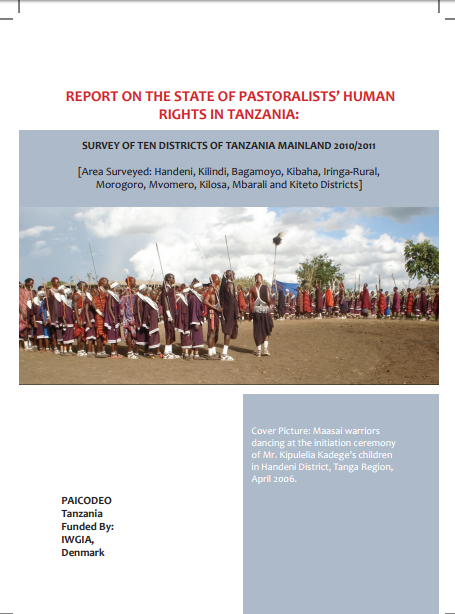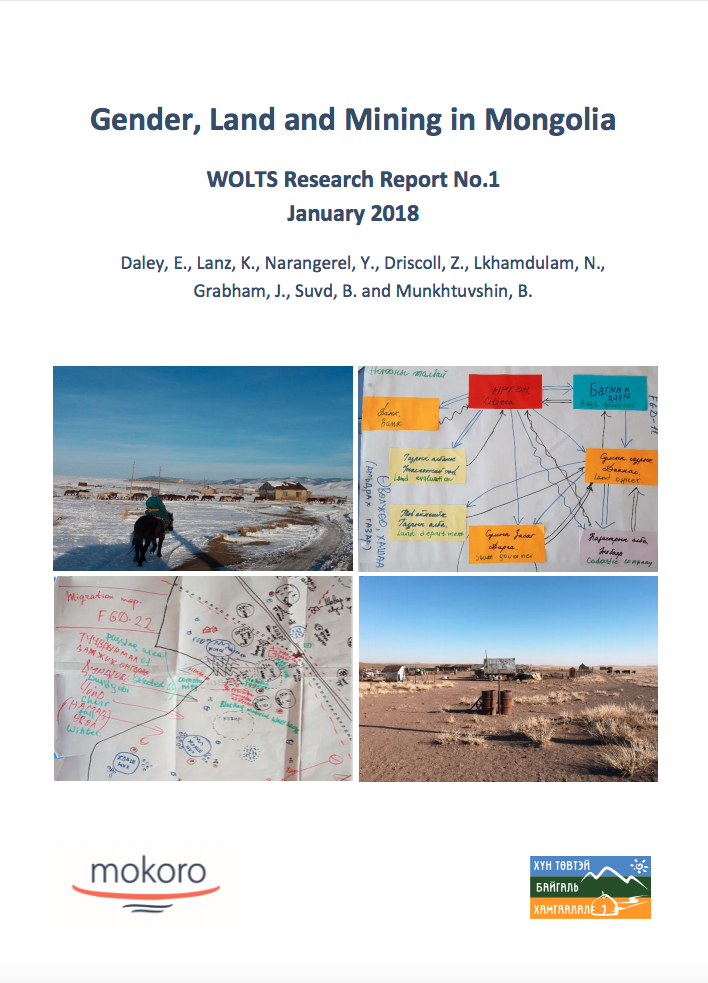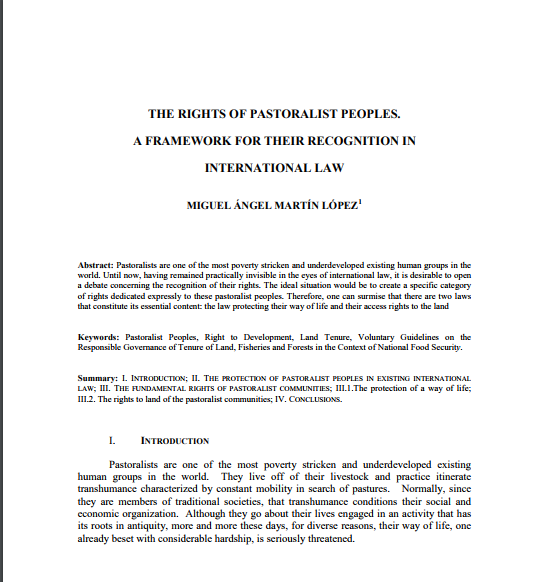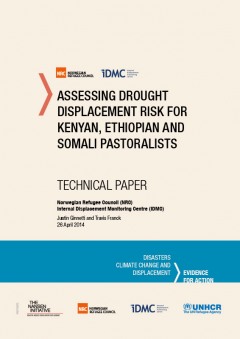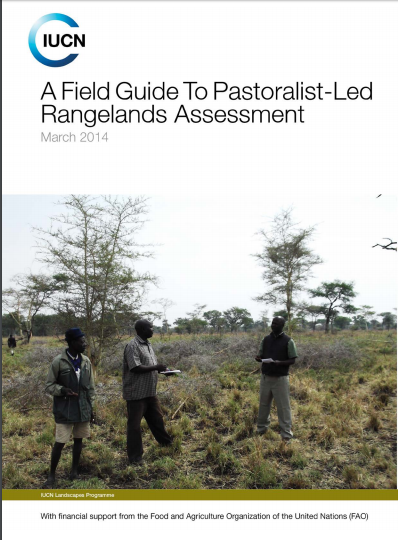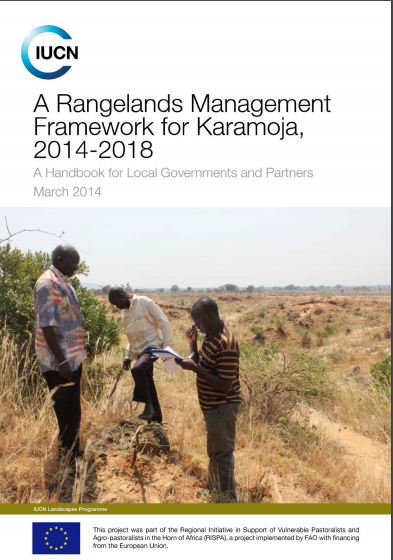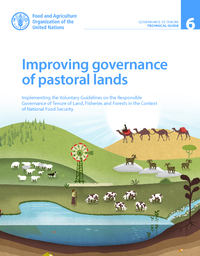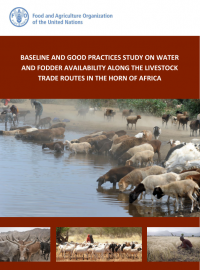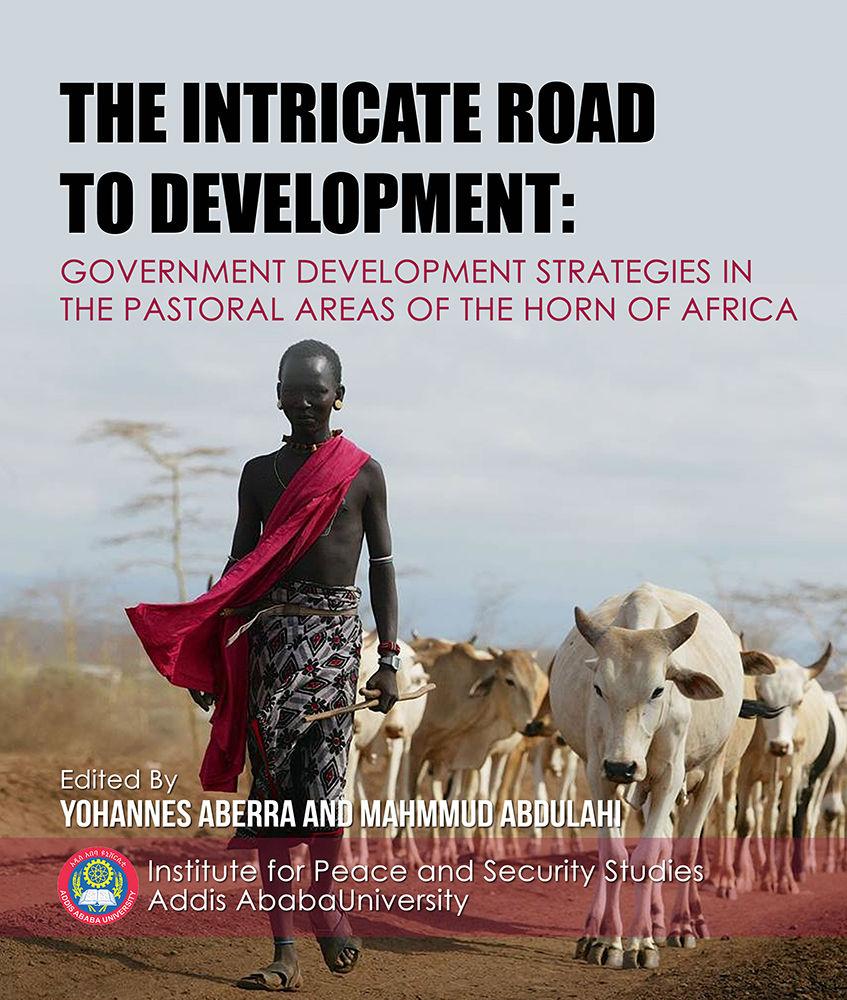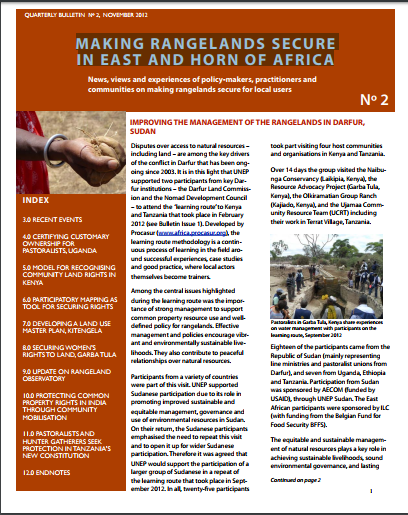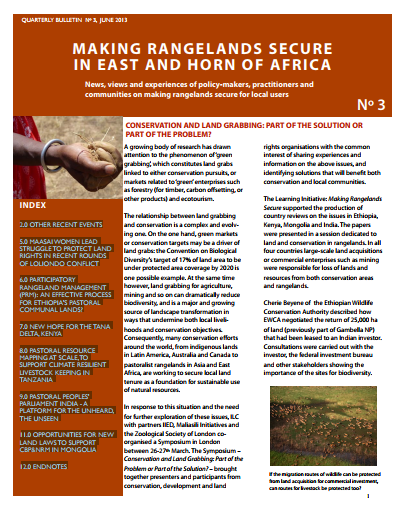Report on the State of Pastoralists' Human Rights in Tanzania: Survey of Ten Districts of Tanzania Mainland 2010/2011
This report highlights some of the human rights challenges which the Indigenous peoples in Tanzania, particularly Maasai pastoralists, are facing. It also proposes some areas of improvement in order to make Tanzania a better place for everyone, including indigenous pastoralists. It should be noted that Tanzania has more than 120 different ethnic groups, which are Bantu-speaking, Nilo-hamitic (including the Maasai) and Cushitic.

